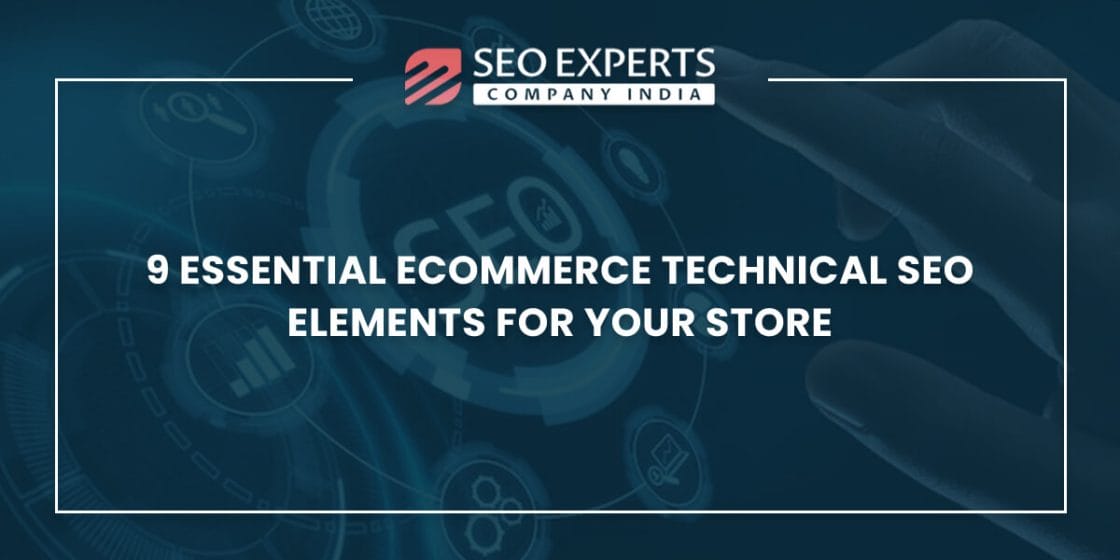Ecommerce link building involves getting other websites to link back to yours. It is an important SEO strategy that can help ecommerce websites shine in the search results.
Through our own journey, we have learned valuable lessons from trial and error, moving from setbacks to breakthroughs. To help you in your ecommerce link building journey, we’ve compiled our proven strategies and insights from a decade of experience into this article.
So, let’s jump in and discover some powerful techniques to elevate your link-building.
What is Ecommerce Link Building?
E-commerce Link Building is the practice of acquiring quality backlinks from relevant websites and platforms. These links act like recommendations from one site to another, which helps improve domain authority and boost referral traffic.
How Link Building Contributes to The Success of Ecommerce Store Owners?
Backlinks act as a virtual “pat on the back” from other websites, signaling to Google that your website is credible and trustworthy. Here are some key benefits of link building for ecommerce stores:
Improves Domain Authority and Recognition
When Google sees that your website is securing backlinks from authoritative and high-quality websites, it boosts your ecommerce website’s domain authority and strengthens brand recognition.
Better Search Engine Rankings
By improving the website’s relevancy and authoritativeness, backlinks help boost the website’s ranking in the search results. With increased visibility comes more organic traffic, which ultimately translates to better sales for your business.
Higher Customer Reach
Link building expands your customer reach by collaborating with influencers and industry experts. This allows ecommerce store owners to attract new audiences and engage with potential customers who may not have discovered the brand otherwise.
Improves Geographic Targeting (for local stores)
For ecommerce stores targeting a specific geographic location, earning reviews from local directories and review sites can improve local SEO. This, in turn, can result into higher visibility and stronger connections with the local community.
9 Verified Link Building Strategies for Ecommerce Store Owners
Publish Link-Worthy Blogs
Great content not only informs, it inspires. Therefore, blogs are an excellent way to earn quality backlinks as well as connect with your audience. When your blog post provides helpful tips and techniques, how-to-use or how-to-style insights, valuable information, entertainment, or teaches something new, it naturally attracts attention from other websites in your industry. When these websites find your blog posts valuable, they may naturally link to them in their own content as a reference or resource, resulting in organic backlinks.
Create Listicles
Listicles like “Top 10 (X) Brands” or “Best Brand to Invest Into This Year” can help you gain a lot of popularity. People are always curious to know what’s new, trending, and is worth the hype. By creating a list of the top sites and blogs in your industry and sharing it with them, you can gain their interest and potentially earn backlinks. It’s a win-win situation where you provide valuable recognition to others, while boosting your own site’s visibility and authority.
Publish Original Research and Stats
Dedicate your time to carry out research and surveys. Sharing statistics with your audience not only helps them measure things effectively but also grasp the current market conditions and anticipate future trends. By doing so, you’ll likely find that many articles will refer to the numbers from your report, linking you as the source.
Guest Posting
Guest posting is an SEO practice that involves writing and publishing articles on other relevant websites within the industry. This practice helps expand customer reach, earn referral traffic and attract quality backlinks.
To start, write unique content and then identify relevant blogs, websites, magazines, etc., that accept guest contributions.
For example, we assisted our client, who sells leather jackets, in boosting their website’s domain authority and increasing organic traffic by writing and publishing guest posts on industry relevant websites.
Here are a few tips that you can implement while writing the guest post:
- Publish Valuable Content: Write informative and original content. Avoid grammatical and spelling errors.
- Include Links Naturally: Ensure to strategically include a link directing readers back to your ecommerce store or relevant product/category pages within the content or author bio. Also, we advise you to inform the publisher beforehand that you will be inserting a link.
- Choose Industry Relevant Websites: Select authoritative and relevant blogs or websites with good domain authority to publish your content. You can check the domain authority of any website for free using SEO tools like Moz or Ahrefs.
- Read Guest Posting Guidelines: Always check the blog’s guidelines before writing a guest blog post. Most blogs with guest blogging programs have specific rules and instructions for contributors, which they usually publish for reference.
Digital PR
Digital PR or Digital Public Relations is an excellent link building strategy for ecommerce stores. It includes building public relations, gaining popularity and earning valuable backlinks through press releases or published news articles.
To give you a clear difference between the both, press releases typically come straight from the company, serving as official announcements about their activities or developments. On the other hand, news articles are usually written by independent journalists or editors from news channels or magazines, providing a third-party perspective on events or topics related to the companies.
Here are some tips that you must consider while strategizing about Digital PR for link building:
- Build Relationships: Invest your time and effort into building genuine relationships with the journalists, website bloggers, and industry experts in your field. Connect with them and show genuine interest in their work, and offer something valuable before asking for a mention.
- Understand Your Audience: Understand your target audience and learn about their interests and needs to resonate your effort and content with the audience.
- Stay Updated With the Industry News: Stay afresh and updated with the latest industry news and trends. This knowledge can spark ideas for your PR campaigns, helping you gain extra attention and popularity .
- Offer Incredible Insights: Position yourself as a go-to source for exclusive insights, innovation or trends within your industry. Offer journalists and bloggers unique angles or perspectives that they can’t find elsewhere, increasing the likelihood of them linking back to your site.
- Customize Outreach Pitches: Give a personal touch to your outreach pitches, demonstrating that you’ve done your research, you understand their audience’s interests. Include their suggestions into your stories and highlight how your content or story can provide value to their readers.
Collaborate with the Influencers and Bloggers
Use the “Influence of the Influencers” to earn high-quality backlinks. Most bloggers and influencers have a dedicated following who trust their recommendations. Therefore, getting their reference is like getting a stamp of approval from someone who is already trusted by tons of people online. When influencers talk about your products or brand on their social media platforms, they often include links back to your ecommerce site, which can result in more people noticing and engaging with your brand.
The trick here is to choose the right partners that represent your brand and this can help you attract high-quality backlinks. Additionally, these links mostly direct back to your product pages, increasing the chances of conversions.
Here are some tips that you can follow while building links through Influencer Collaboration:
- Personalize your Outreach Messages: Make sure to personalize the messages or emails that you send to the chosen influencers. Keep your message clear, concise, and focus only on the important parts.
- Choose Industry Relevant Bloggers: Be careful while choosing the blogger and make sure you reach out only to the relevant influencers.
- Team Up with The Influencers in Content Creation Process: Team up with influencers to create high-quality, engaging content that resonates with their audience and showcases your products or brand in an authentic way. This could include product reviews, unboxing videos, tutorials, or sponsored posts.
- Utilize Email Finding Tools: Utilize email finding tools like Hunter.io or Clearout.io to find email addresses of the bloggers you want to reach.
- Verify the Links: Ensure and verify that the content created by influencers includes relevant links that direct back to your ecommerce site/ products.
Use Pinterest for Ecommerce Link Building
With over 498 million monthly active users, Pinterest is a great platform for ecommerce link building. People often visit Pinterest to get outfit inspirations, check out the home decor, follow new trends, etc. So, you can take advantage of this platform by creating visually compelling pins with clear product descriptions and keywords that link back to your website.
Here’s how you can create backlinks for ecommerce through Pinterest:
- Create and Optimize Your Backlink Profile: Create your Pinterest Business Account and enter all the details to complete your profile. Add a clear description, relevant keywords, and a link to your ecommerce website.
- Upload Images: Create Pins by uploading original website images from your ecommerce store. To do so, simply select the “save from the website” option on Pinterest, select your image and in the final step add an optimized description using relevant keywords that accurately describes your product.
- Earn backlinks: Relax and earn those backlinks through pinterest whenever people search for relevant products and discover your website, naturally generating valuable backlinks.
SEO Tip: To boost your Pins’ visibility, place them on relevant Pinterest boards (themed-collections of related content). Also, choose a descriptive name when setting up a personal board, and decide if others can contribute to it.
Claim Unlinked Brand Mentions
Unlinked brand mentions point to instances where the mentions of your brand on the internet do not link back to your website or social media profiles. These mentions can occur anywhere in the news articles, blog posts, social media posts, or any other online content.
By tracing the unlinked brand mentions, you can potentially gain more visibility, referral traffic, and authority by requesting that the mention be linked back to your ecommerce website.
Here’s how you can find out unlinked brand mentions for your ecommerce store:
- Set up Alerts: Setting up alerts is an intelligent way to be aware of your brand mentions. You can use tools like Google Alerts or Mention to monitor the web for mentions of your brand name, product names, or other relevant keywords.
- Search Manually: Conduct manual searches on Google and other search engines to locate unlinked mentions. You can use operators like “site:”, “inurl:”, “intitle:”, “filetype:”, and “related:” before your search to get better results.
- Utilize SEO Tools: We advise you to use tools like SEMrush, BuzzSumo, BrandMentions or Moz Link Explorer to identify websites that mention your brand but don’t link to your site. You can enter your domain name into these tools to view your backlink profile to identify potential unlinked mentions.
Leverage Product Reviews
Yes! Product reviews are a fantastic strategy for securing quality backlinks. You can work it out by reaching out to bloggers, influencers, relevant websites and experts in your field. All you have to do is offer them a free product in exchange for their honest review and a link to your product page or website. (However, if you find this challenging, you can always take assistance from our experts).
Additionally, don’t underestimate the power of your satisfied customers. Encourage them to share their experiences by leaving reviews on retailer sites, blogs, forums, and other social media channels. Remember, every review, whether good or bad, is an opportunity to show your commitment to customer satisfaction and build trust with your audience.
Wrapping Up
To conclude, it is evident that ecommerce link building is a powerful strategy for ecommerce businesses. It helps attract the right audience and assists in building domain authority. By following the practices outlined in the article, your ecommerce store can build valuable backlinks and improve search engine rankings.
However, building links for ecommerce can be challenging and our specialized ecommerce seo agency recognizes the impact that effective link building can have on your brand. By utilizing our strategic partnerships, creating engaging content, and implementing effective link building tactics for your online store, we are sure to improve your ecommerce brand’s visibility and conversions.
Reach out to us to learn more about our services.
Ecommerce Link Building FAQs
What types of links are most valuable for ecommerce sites?
The most valuable backlinks for ecommerce websites come from product reviews, influencer recommendations, news articles, and editorial mentions on high-authority, relevant websites.
Are there any link building tactics that should be avoided for ecommerce sites?
As an ecommerce website, it’s important to avoid building links from low-authority, irrelevant websites. Additionally, avoid engaging in link farm practices, as they can result in penalties from Google. Refrain from building links through blog commenting as well, because this tactic is often viewed as spammy and ineffective for SEO.
How can I earn links naturally for my ecommerce business?
As discussed above, you can practice guest posting, write informative content, create listicles, get featured in news articles and blogs, outreach influencers, leverage social media and product reviews, publish press releases, etc. to earn natural and genuine links for your ecommerce website.
What challenges might I face with ecommerce link building, and how can I overcome them?
In ecommerce, fierce competition and thin or duplicate content can make getting links a challenging task. But don’t worry! Keep following genuine link building practices, publish useful content, sell innovative and quality products, connect with influencers, optimize product pages, and see what works best for your site. That way, you’ll boost your site’s visibility and attract valuable links.
How does link building differ between B2C and B2B ecommerce platforms?
B2C aims to attract individual shoppers with a focus on link building strategies such as influencer partnerships, product reviews, social media, media mentions, etc. B2B ecommerce, on the other hand, targets businesses and requires a more targeted approach, often involving link building through industry-specific directories, content dmarketing, industry events and conferences, and other professional networking platforms.

















